Welcome
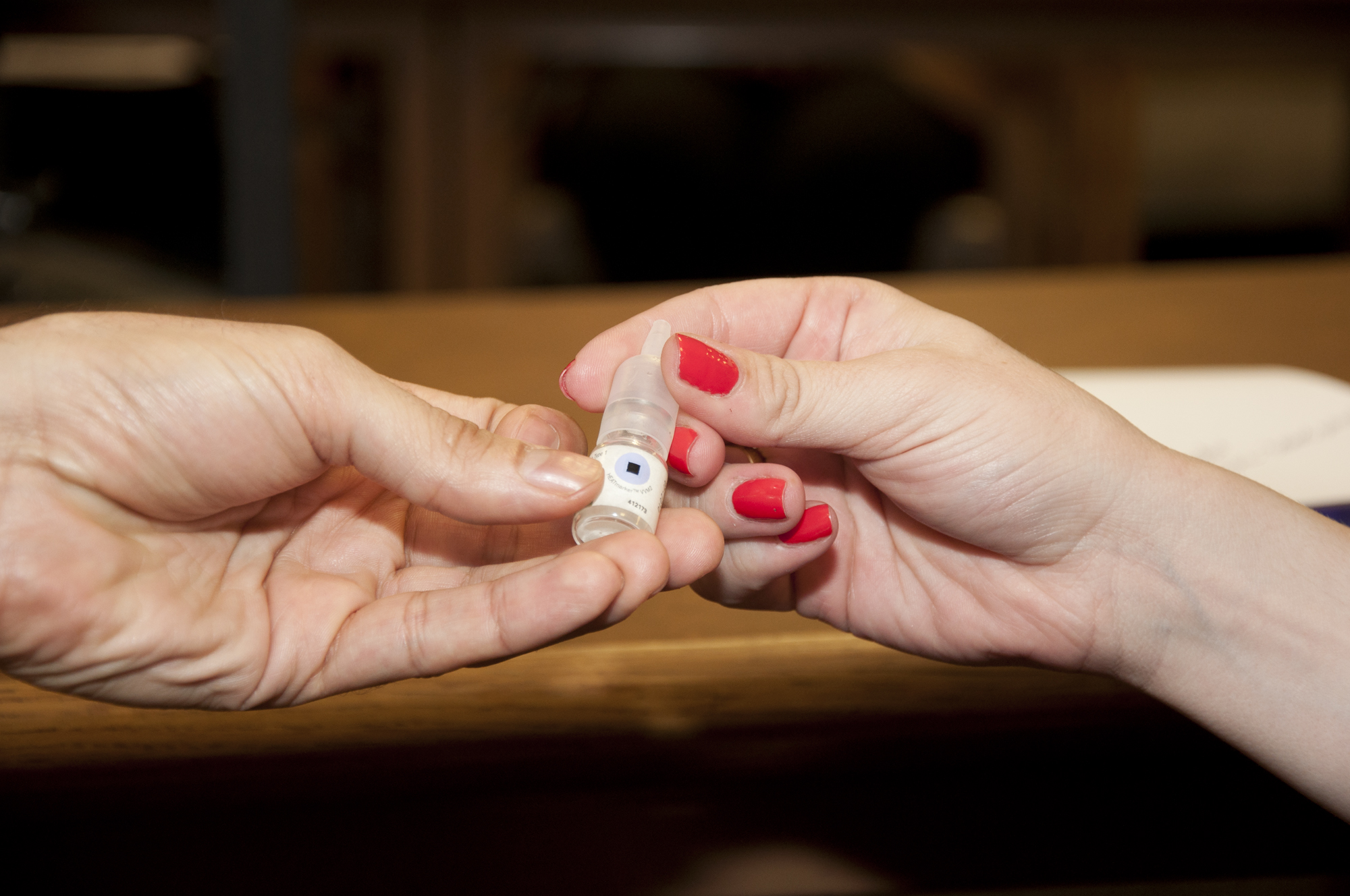
Holding Hands to Eradicate Polio - The Vaccine (with a black dot to indicate a past expiration date).
Welcome friends of New York University to the site hosting source materials for the first UN-Rotary polio eradication module session of the Global Civil Society learning and research community in the Center for Global Affairs at NYU SCPS.
Our sincere appreciation is expressed to Mark Macmurdo, New York University, for his gracious assistance in the creation of this webpage to host our source materials.
The UN-Rotary polio eradication session is one of ten (10) modules that comprised the summer II 2012 Global Civil Society course taught by Professor Colette Mazzucelli in the core of the Master of Science in Global Affairs (MSGA) Program. This course is profiled by the Council on Foreign Relations in the August 2012 CFR Educators Bulletin.
My name is Colette Mazzucelli. It has been my pleasure to be a member of the graduate faculty in the Center for Global Affairs at New York University since 2004.
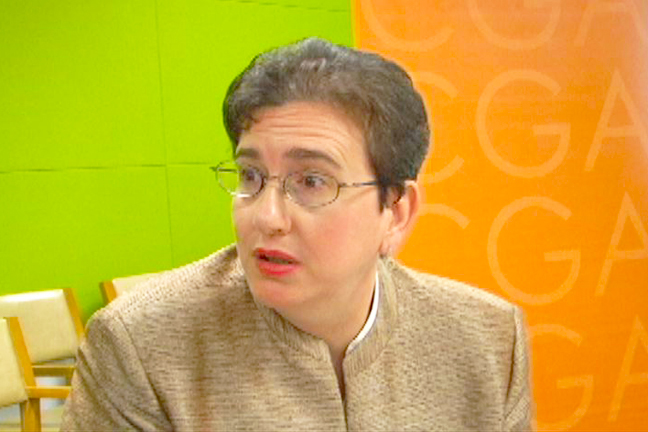
Dr. Colette Mazzucelli.
In 1987-88, it was my honor to serve as a Rotary Graduate Ambassadorial Scholar in Strasbourg, France studying at the University there and participating in the work of the European Parliament and the Council of Europe.
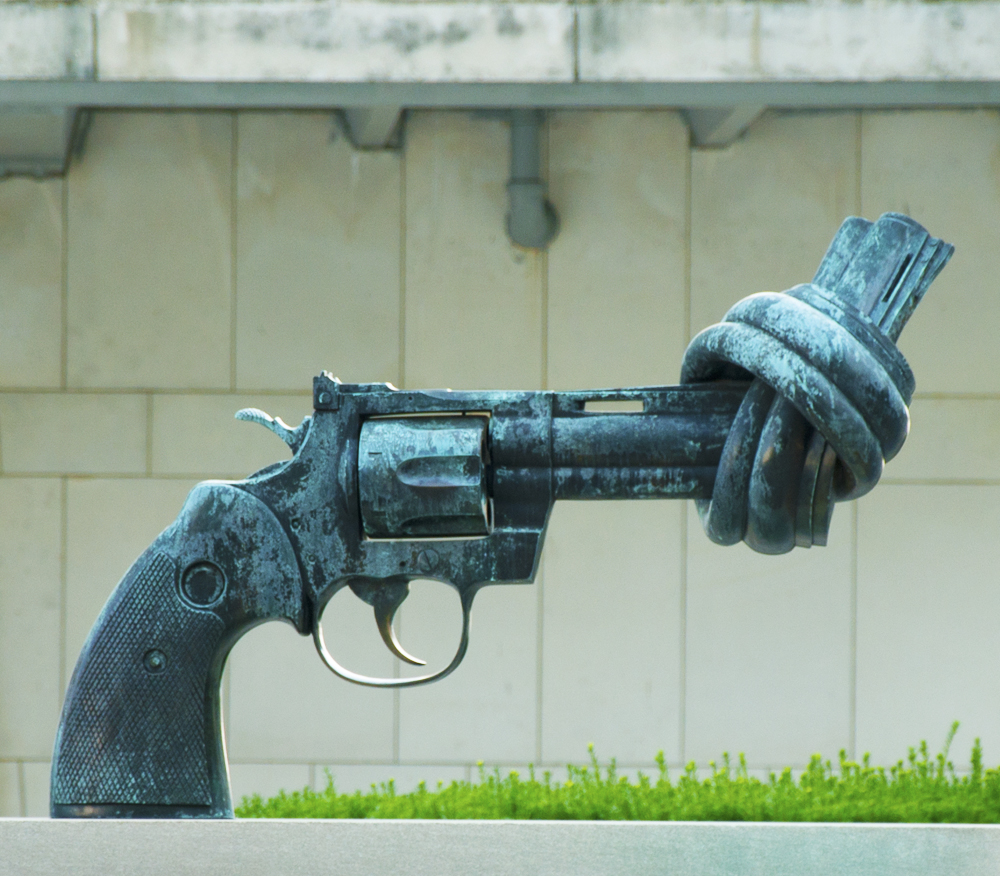
Twisted Gun Statue at the United Nations Building (Gift of the Government of Luxembourg to the United Nations, 1988).
At the Center for Global Affairs, it has been my responsibility to teach core MSGA courses in the following subjects over time: Peacemaking and Conflict Resolution; International Relations in the post-Cold War Era; and Global Civil Society; as well as elective courses in Ethnic Conflicts; EUrope in the 21st Century; and From the Mughals to Modernity: India's Democracy and Its Discontents.
This session's web resources build on a module hosted in the United Nations Secretariat during September 2011.
Our host that fall, Mr. Jonathan Stambolis, provided insights into another critical global health concern, HIV-AIDS Prevention with a focus on India. I would like to express my appreciation to three individuals who made this module session possible in July 2012: Miss Karen Duncan, a Master of Science in Global Affairs graduate from New York University and colleague in the United Nations Department of Safety and Security; Mr. Jonathan Stambolis who returned to the United Nations, accepting the appointment in the Executive Office of the Secretary-General of the United Nations, as an Adviser to Secretary General Ban Ki-moon and Deputy Secretary-General Jan Eliasson; and Mr. Kevin O'Down who filmed the module session. Kevin is the Project Manager working with Educational Video Center and Satellite Academy High School's Documentary Project. As a MSGA candidate at New York University, he comes from a long background of documentary production work with clients that include: The Discovery Channel, American Masters, NOVA, Google, Travel Channel, CNN, Oprah Winfrey, the 2008 Barack Obama Campaign, and numerous independent film companies from around the world.
During the module session on 17 July, course participants, whose experiences are captured in still images on this page, learned about the global campaign of Rotary International to eradicate polio in our world.
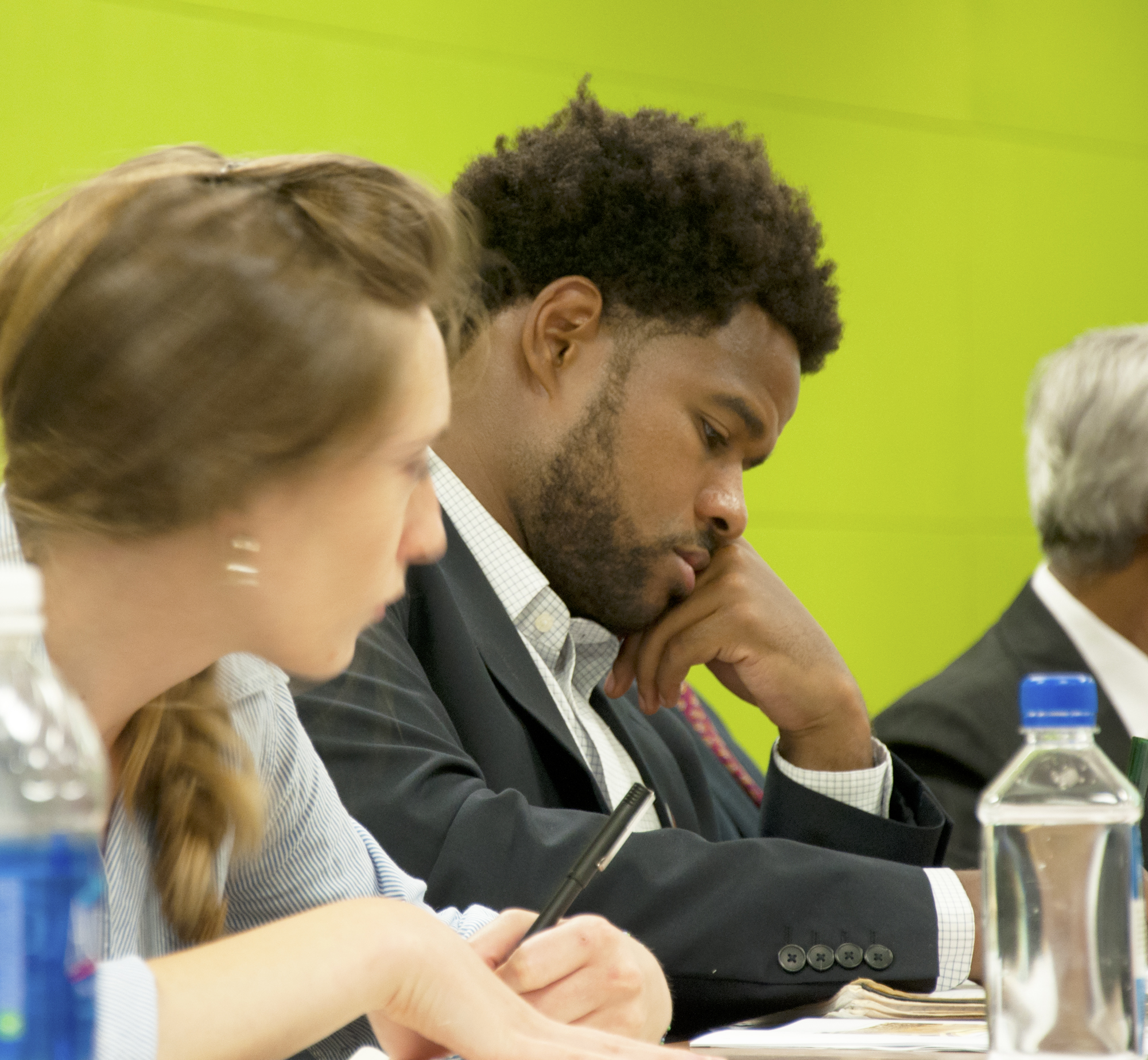
MSGA Candidates Giulia Anichini Viollet
and Eric Charles Williams.
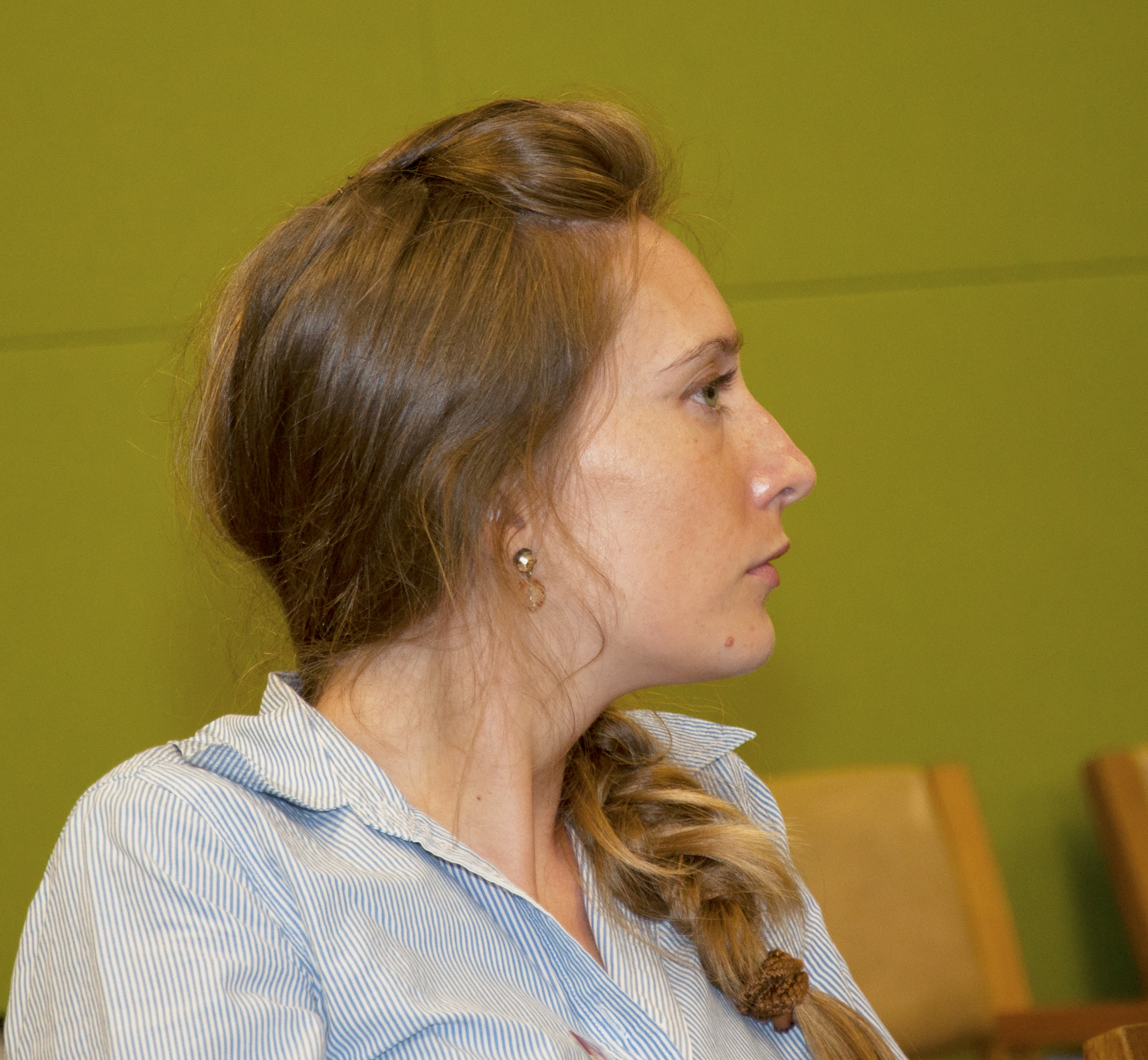
MSGA Candidate Giulia Anichini Viollet.
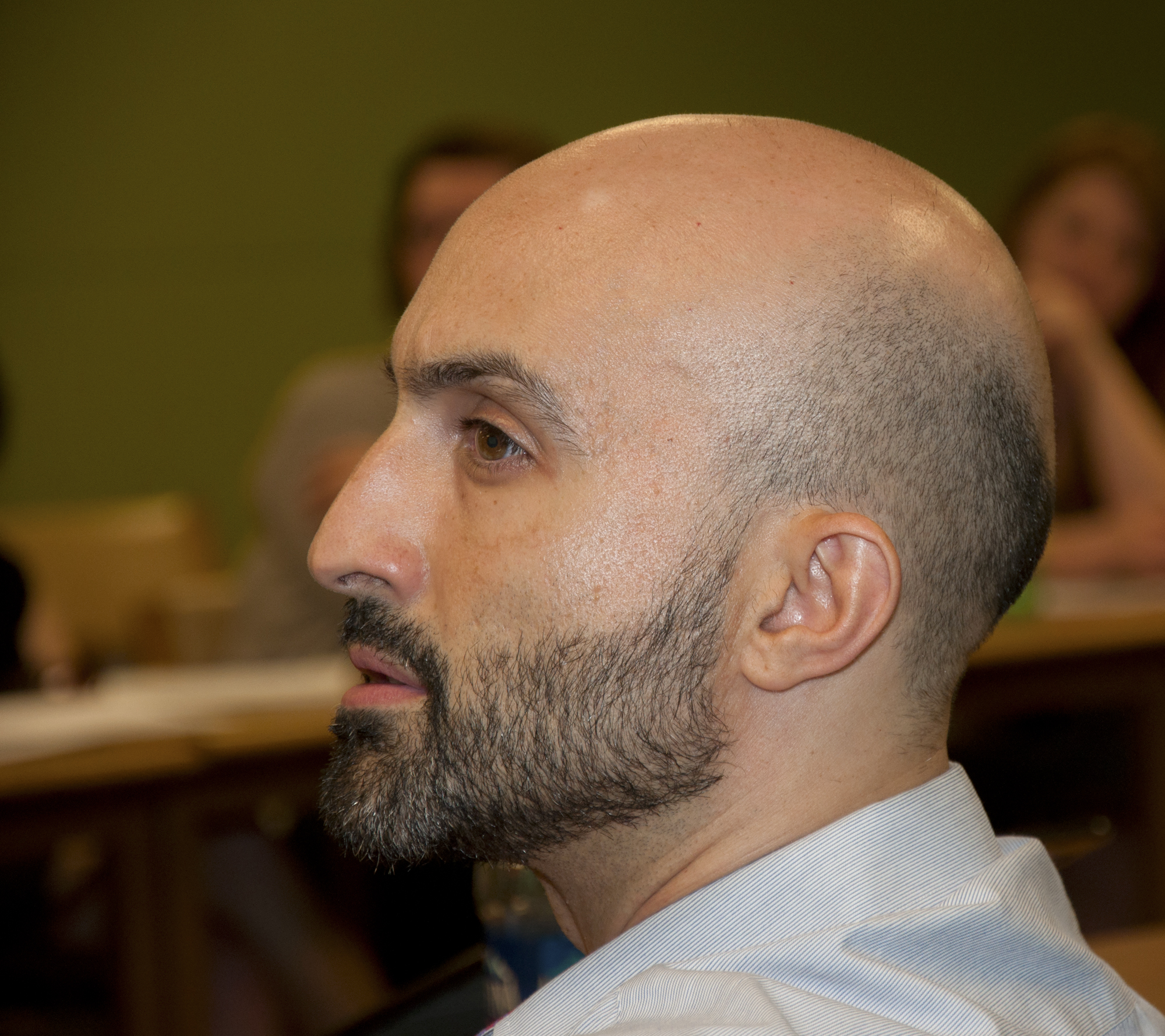
Guest Speaker Jalaa' Abdelwahab.
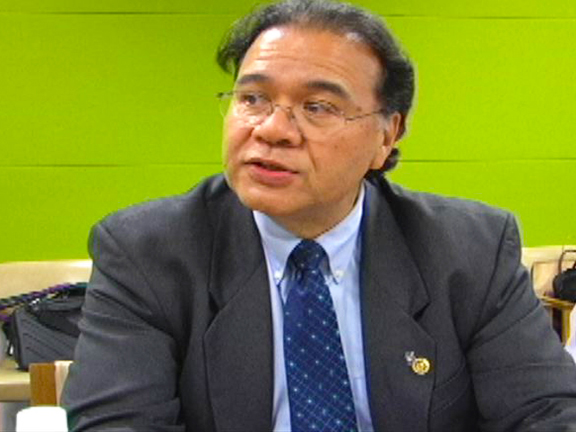
Rotarian Joe Clark.
The spread of infectious disease strikingly demonstrates human interconnectedness. Polio is now endemic to just three countries: Afghanistan, Nigeria and Pakistan. In recent years, visitors have carried it back to 39 previously polio-free states.
Through the consistent efforts of the Global Polio Eradication Initiative—which links national governments to the World Health Organization, the U.S. Centers for Disease Control and Prevention, UNICEF, Rotary International, and the Bill & Melinda Gates Foundation—progress has been tremendous. Polio cases dropped from 350,000 in 1988 to less than 100 in 2012. In the same period, endemic countries fell from 125 to three. India, which, because of population density and poor sanitation, was considered the greatest challenge, had zero polio cases last year.
In the context of efforts by Rotary International to eradicate polio, we also reflected on the emerging activism of non-governmental organizations (NGOs) in a vital area of concern.
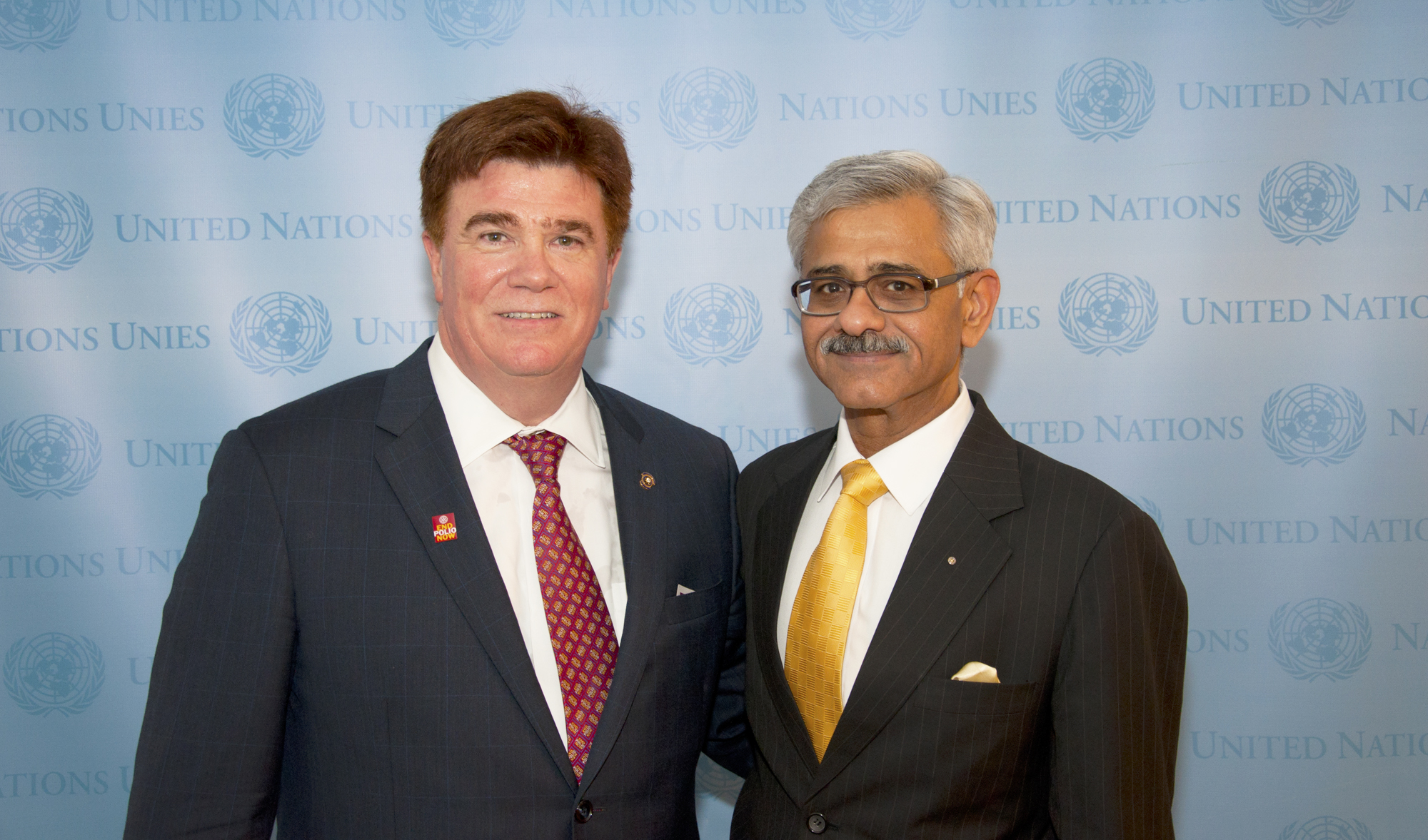
United to End Polio in Our World - Rotarians George Camp and Deepak Kapur.
Instead of making the claim that NGOs constitute global civil society or represent the peoples of the world, we conducted the module session to investigate how Rotarians care to the needs of millions who might otherwise be in danger of contracting the poliovirus, thereby establishing Rotary's expertise and competence as a NGO in this particular case.
Ours was perhaps not so much a theoretical concern in that a focus was less how NGOs confer legitimacy on nascent organizations of global governance like the United Nations. In this module, we questioned claims as to how NGOs represent the peoples of the world or transmit the ideology of global civil society. Rather, we acknowledged that Rotary International has undertaken to accomplish a specific social mission, as defined by Anderson and Rieff, which is the starting point to learn about polio eradication through a series of presentations, which may be viewed separately or together as video clips.
Inspired by Mrs. Birla's 2012 Rotary Convention address in Bangkok, together we learn about polio eradication as one challenge an emerging global society faces. Our spirit of inquiry is guided by Mrs. Birla's conviction that "Giving is Living."
Deepak Kapur
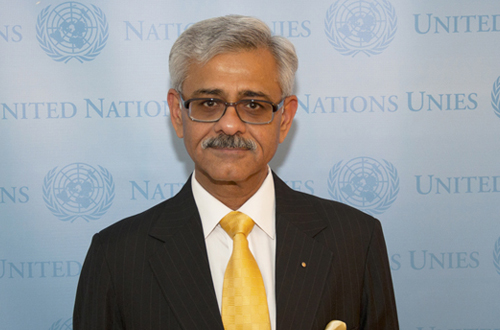
Deepak Kapur.
We began with Rotarian Deepak Kapur who has been Chairman, India National PolioPlus Committee of Rotary International since 2001. Deepak Kapur is a member of the Rotary Club of Delhi South. He has served on various National and International assignments of Rotary International.
Previously Chairman Kapur was given the International Service Award for a Polio Free World as well as several prestigious awards by Rotary. He was recognized by the Government of Delhi for his contribution in the Pulse Polio Immunization Programme.
He graduated with Honours in Economics from St. Stephen's College, Delhi University and is a Fellow Member of the Institute of Chartered Accountants of India.
In 1979, Deepak Kapur joined the family business of Printing and Publishing, which was set up in 1888. He was born in a Rotary family and is a third generation Rotarian.
George Camp
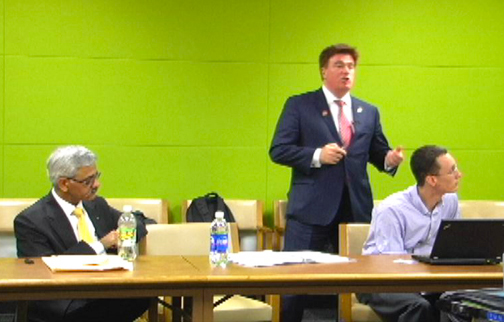
Rotary in Action - Chairman (Delhi South) Deepak Kapur, George Camp (explaining the Rotarians engagement on a National Immunization Day), and MSGA Candidate Jason Wetzel.
We continued with a presentation by Mr. George Camp who has been a Rotarian dedicated to the ideals of Rotary since becoming a member of the Rotary Club of Ossining, New York in 1982. He served as President of his club in 1987 and District Governor for Rotary International District 7230 (Staten Island, Manhattan, Bronx, Westchester County and Bermuda) in 2010-2011.
Mr. Camp has also been awarded the Rotarian of the Year multiple times by his club, Rotarian of the Year by the District and he received the Service Above Self Award from Rotary International.
George's passion is Polio Plus. He has served as a NID Volunteer in Bangladesh and Nigeria. He helped immunize hundreds of children against Polio and visited countless homes in the slums with local health care workers. He will be leading a SNID team to Pakistan in September.
George is the owner and licensed Director of Dorsey Funeral Home, Inc. located in Ossining. George has two sons Brendon age 21 and Evan age 18.
John Toner
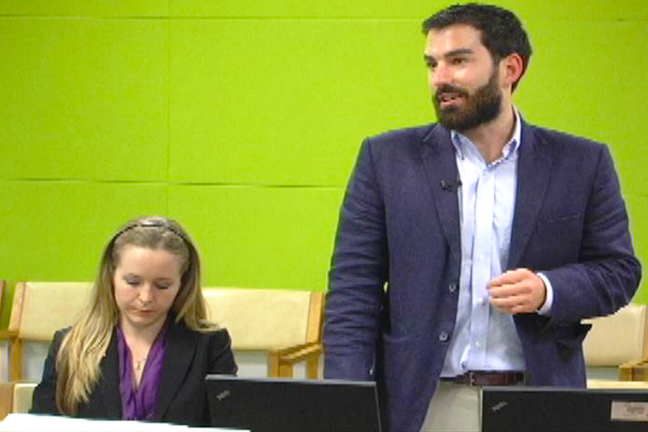
NYU Wagner Graduate Candidate Ali Wimer and John Toner (presenting the applications of DevInfo database technology).
We continued with a DevInfo database technology presentation by John Toner who currently works as an Aid Effectiveness and Development Technical Advisor with the Community Systems Foundation.
A social and economic development specialist focusing on incentive-based development, John's goal is to build bridges across sectors to reduce poverty.
As a Rotary Ambassadorial Scholar in 2008, John studied strategic development planning, democracy and citizenship theory, and the Bolivian economy at the Center for Development Studies in La Paz, Bolivia.
As the recipient of a Tinker Research Grant through the NYU Center for Latin American and Caribbean Studies, John conducted a pilot study exploring new models in qualitative and quantitative data collection using digital mapping technology in Guatemala.
In May 2011 he graduated with a Master of Science in Global Affairs from the New York University Center for Global Affairs with a concentration in economics, international business, and trade.
Jalaa' Abdelwahab
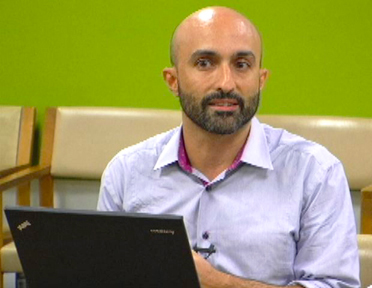
Jalaa' Abdelwahab.
Our closing presenter was Jalaa' Abdelwahab who is an epidemiologist by background and who has been part of the Global Polio Eradication Initiative since 2001.
He has worked with the Centers for Disease Control and Prevention (CDC), World Health Organization (WHO) and, most recently with UNICEF. He provides support to governments and partners in polio eradication activities including: providing technical guidance in developing strategies, capacity building, reviewing and developing surveillance systems, communication and social mobilization, and planning and implementing house-to-house polio immunization campaigns in Africa and Asia.
Jalaa' has worked extensively in Pakistan, Afghanistan, Somalia, Sudan, South Sudan, Kenya, India and Egypt. He is currently the Technical Officer/Epidemiologist in the Poliomyelitis Eradication Team at UNICEF Headquarters in NY. Prior to working on polio he worked on health programs at community based organizations in the US and was also the molecular epidemiologist at the Tuberculosis Control Program at the NYC Department of Health and Mental Hygiene.
Jalaa' holds a BS in Biology/Biochemistry and a Masters of Public Health in Epidemiology focusing on International Health from University of Michigan School of Public Health, Ann Arbor, MI.
We share the resources in this module session to continue a Lore discussion anchored in the literature as we ask if Rotary International is a transnational advocacy network (TAN) as defined by Keck and Sikkink? Moreover, what are the implications of TAN research for global health issues since environmental and human rights advocacy networks as well as transnational networks on violence against women have been explored more in-depth in the academic literature?
End Polio Now: Conference Videos
To watch the conference in its entirety, simply click the play button below. At the end of the clip, the next segment will begin playing automatically. Otherwise, you can go directly to a segment by selecting it from the right-hand list.